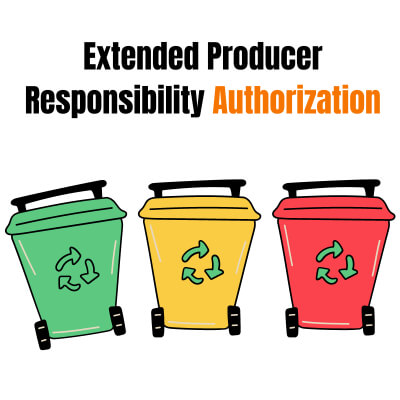
Managing electronic waste has become vital in today's environment, as electronics play a big part in our everyday lives. It is your duty as an owner of an electronics company to make sure that, after being used, your products do not damage the environment. The Extended Producer Responsibility Authorization (EPRA) is useful in this situation. Manufacturers are required by law to take responsibility for the collecting, recycling, and disposal of their products when they have reached the end of their useful lives. This guide will help you understand how to obtain EPRA for your electronics business, step by step.
Under the Extended Producers Duty (EPR) policy approach, producers bear a substantial financial and/or physical duty for the handling and disposal of post-consumer products. Encouraging manufacturers to produce eco-friendly products, cut waste, and stimulate material recycling is the primary goal of EPR. EPR guarantees that firms handling electronic goods correctly handle their end-of-life phase.
In order to comply with environmental rules and promote sustainability, electronics manufacturers must implement EPRA. Businesses risk fines, legal repercussions, and reputational harm without EPRA. Additionally, earning an EPRA proves your dedication to environmental preservation, which enhances the perception of your company.
To get EPRA, you need to follow a systematic process. Below are the steps involved in obtaining the authorization:
Registering your electronics firm with the Central Pollution Control Board (CPCB) is the initial step towards obtaining EPRA. By going to the CPCB website, you can complete this online. You must complete an application form with information about your company, such as:
The next action you should take is to draft an EPR strategy that describes your plans for managing the disposal, recycling, and collection of your electronic products when their useful lives are over. This strategy ought to consist of:
This plan must be comprehensive and align with environmental guidelines set by the CPCB.
Your EPR plan must be established and submitted to the CPCB for approval. You can do this online as well. To prevent delays, make sure you include all required information and supporting paperwork. The board will examine your strategy to make sure it satisfies their needs.
While it's possible to manage garbage collection and recycling on your own, collaborating with approved recyclers and Producer Responsibility Organizations (PROs) is frequently simpler. These companies can assist in making sure that your EPR plan is implemented successfully, as they are experts in controlling electronic waste.
Working with PROs and recyclers offers several benefits:
You have to put your EPR plan into action as soon as it's authorized and you've established the required alliances. Customers' used electronics must be collected in order to be sent to approved recyclers or disposal sites. A system for tracking and monitoring the quantity of garbage that is collected and recycled should be put in place. This makes it easier for you to fulfill your EPR responsibilities and gives you data that you may send to regulatory bodies as needed.
It’s important to provide regular reports to the CPCB on your waste management activities. These reports should include details such as:
Timely reporting ensures that you remain compliant with EPRA requirements and avoid any penalties.
To apply for EPRA, you will need to provide certain documents to the CPCB, including:
Make sure all documents are complete and accurate to avoid delays in the approval process.
Obtaining an EPRA can take two to six months, depending on how sophisticated your waste management system is and how well your EPR strategy works. Following the submission of your application, the CPCB will check your supporting documentation; if everything checks out, you will get your EPRA. To guarantee timely compliance with EPR laws, it's critical to plan ahead and begin the application process as soon as possible.
Obtaining EPRA for your electronics business offers several advantages:
For Registration Visit: Extended Producer Responsibility Authorization
For Electronics EPR certificate, please visit Metacorp
For Electronics EPR application on CPCB Portal, please visit CPCB EEE EPR
To submit annual compliances for Electronics EPR certificate, Please click HERE
For any Indian electronics company, obtaining the Extended Producers Responsibility Authorization (EPRA) is an essential first step. You may make sure that your company complies with the law and promotes a more sustainable environment by doing the actions mentioned above. To make the management of electronic waste simpler and more effective, get started early in the process, develop a strong EPR plan, and work with professionals. By using EPRA, your electronics company can expand while adhering to environmental regulations, enhancing both your commercial opportunities and your environmental impact.





We are the pioneers in offering environmental consulting services to our patrons, giving us the first mover advantage & keeping us ahead of our competitors.
Very experienced in filing, monitoring & issuance of CDSCO Certificates, Drugs Licensing, Environmental Impact Assessment, AERB certificates, Pollution Control Board CTE & CTO, Waste Management Authorization from State Pollution Control Boards, Fertilizers & Insecticides Licensing
